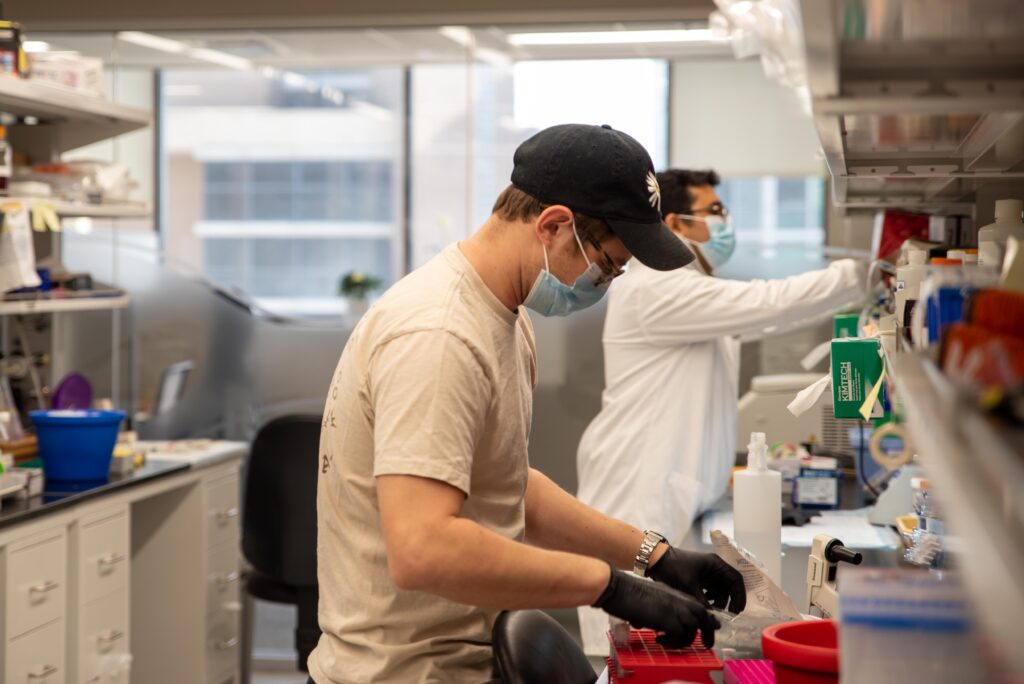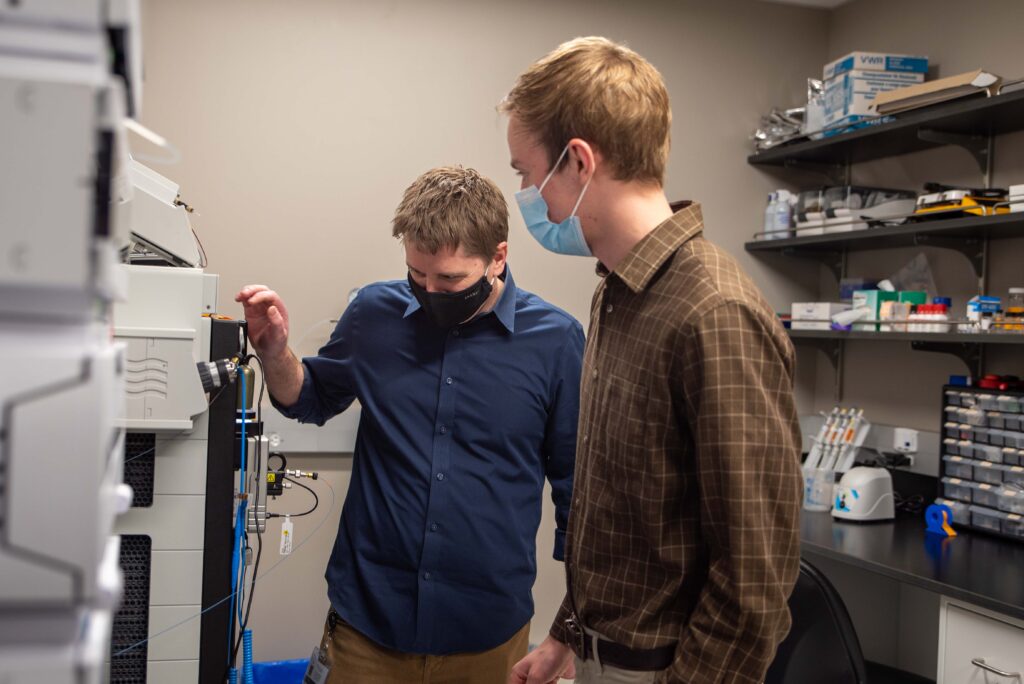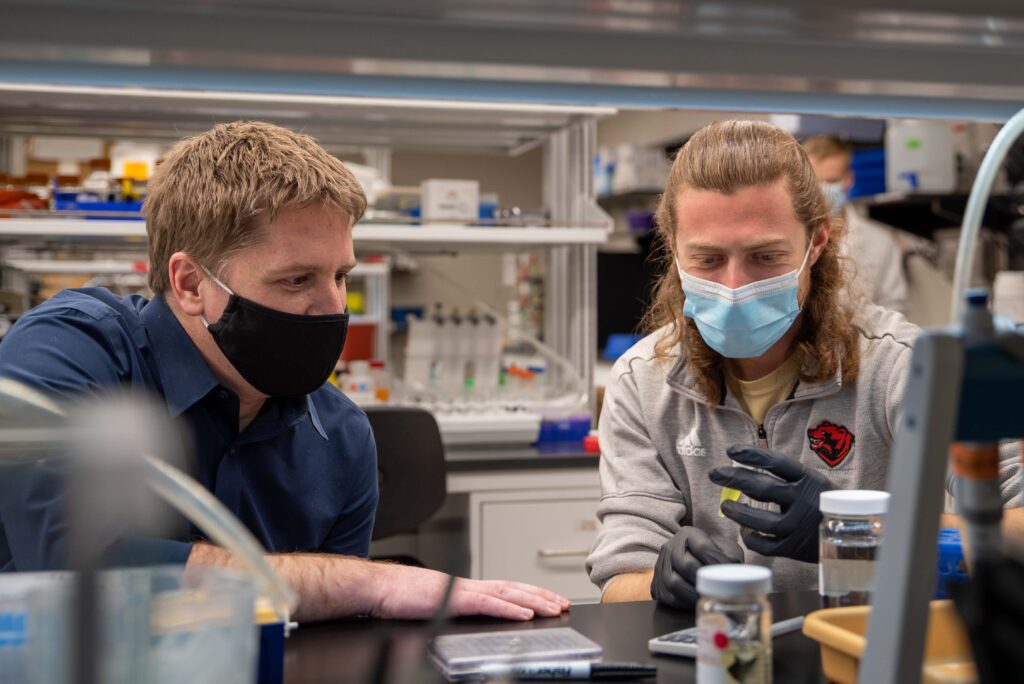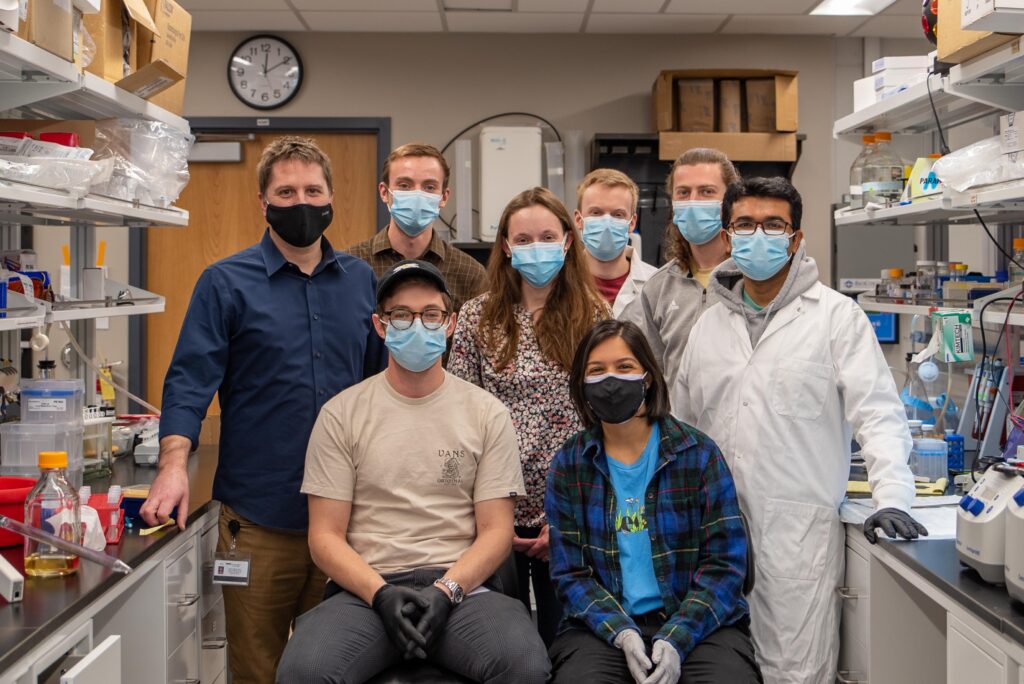Ben Major, PhD, is professor of Cell Biology and Physiology, professor of Otolaryngology and the Alan A. and Edith L. Wolff Distinguished Professor in the Division of Biology and Biomedical Sciences at Washington University in St. Louis. His groundbreaking cancer research is leading to a greater understanding of the factors that control a variety of cancers, including head and neck squamous cell carcinoma (HNSCC).
In normal tissues, a finite number of cellular signals drive the regulated proliferation, development, function and death of individual cells. Understanding how alterations in these signaling pathways contribute to human cancer – a focus of Major’s research – is leading to the development of new diagnostics, prognostics and therapeutic intervention strategies.
One of these pathways, the NRF2 oxidative stress response pathway is normally turned off in healthy cells, but turned on when the cell experiences stress from the environment – diesel fumes, cigarette smoke or sun exposure for example. When activated, this pathway protects our cells from damage, says Major.

Cancer is inherently a very stressful state for a cell. Cancer cells grow indefinitely, utilize energy in a very taxing way, and experience physical pressures not seen in normal cells. As a result, the NRF2 pathway is frequently mutated and constitutive active (turned ON) in many cancer types. Because NRF2 regulates stress, it promotes cellular resistance to many front line therapies, like radiation. Much of Major’s work is aimed at understanding how NRF2 governs cancer cell biology and the development of drugs to inhibit NRF2.
The lab takes an integrative multi-OMICs approach to cancer biology. That means they simultaneously evaluate all genes, all messenger RNAs, all proteins and all metabolites in the cells, using cutting-edge technology. According to Major, integrating all that data provides a comprehensive picture of what NRF2 does to the cell.
“This approach also illuminates key proteins that touch NRF2 and respond to NRF2,” says Major. “Because these proteins function upstream or downstream of NRF2, they provide a treasure trove of possible drug targets to inhibit NRF2.”

One of the core techniques used by the lab is protein mass spectrometry. This approach allows sequencing and quantification of all the proteins in cancer cells. Because proteins are nearly always the drug targets and perform the real work of a cell, knowing the proteins that bind NRF2 and are regulated by NRF2 provides critical information that might allow therapeutic control of this pathway.
The Major lab was the first to identify protein-protein interactions of this pathway and is actively completing drug screens to identify small molecules capable of inhibiting NRF2. Major says he is very excited about one particular lead candidate which they have shown blocks NRF2-driven pre-cancer lesions in mice.
“We are continuing to develop this medicine and hope to begin clinical trials in humans in the coming year.”
Ben Major, PhD
Time, money and people power are always in short supply, according to Major.

“We have a talented hardworking team and one that is highly collaborative with other teams at WashU and across the country. Within the HNSCC space, numerous labs at WashU have been hugely supportive, including Jose Zevallos, MD, Sid Puram, MD, PhD, Angela Mazul, PhD, and Paul Zolkind, MD. Dennis Goldfarb, PhD, also at WashU assists with much of the proteomics research. The work also involves longstanding collaborations with Bernard Weissman, PhD, Andrew Olshan, PhD, and Scott Randell, PhD, at University of North Carolina, and Neil Hayes, MD, at University of Tennessee.”
To learn more about this research, visit the Major Lab website, or email Ben Major.
Read more Otolaryngology news
Cochlear implants turn hearing back on for patients with single-sided deafness
